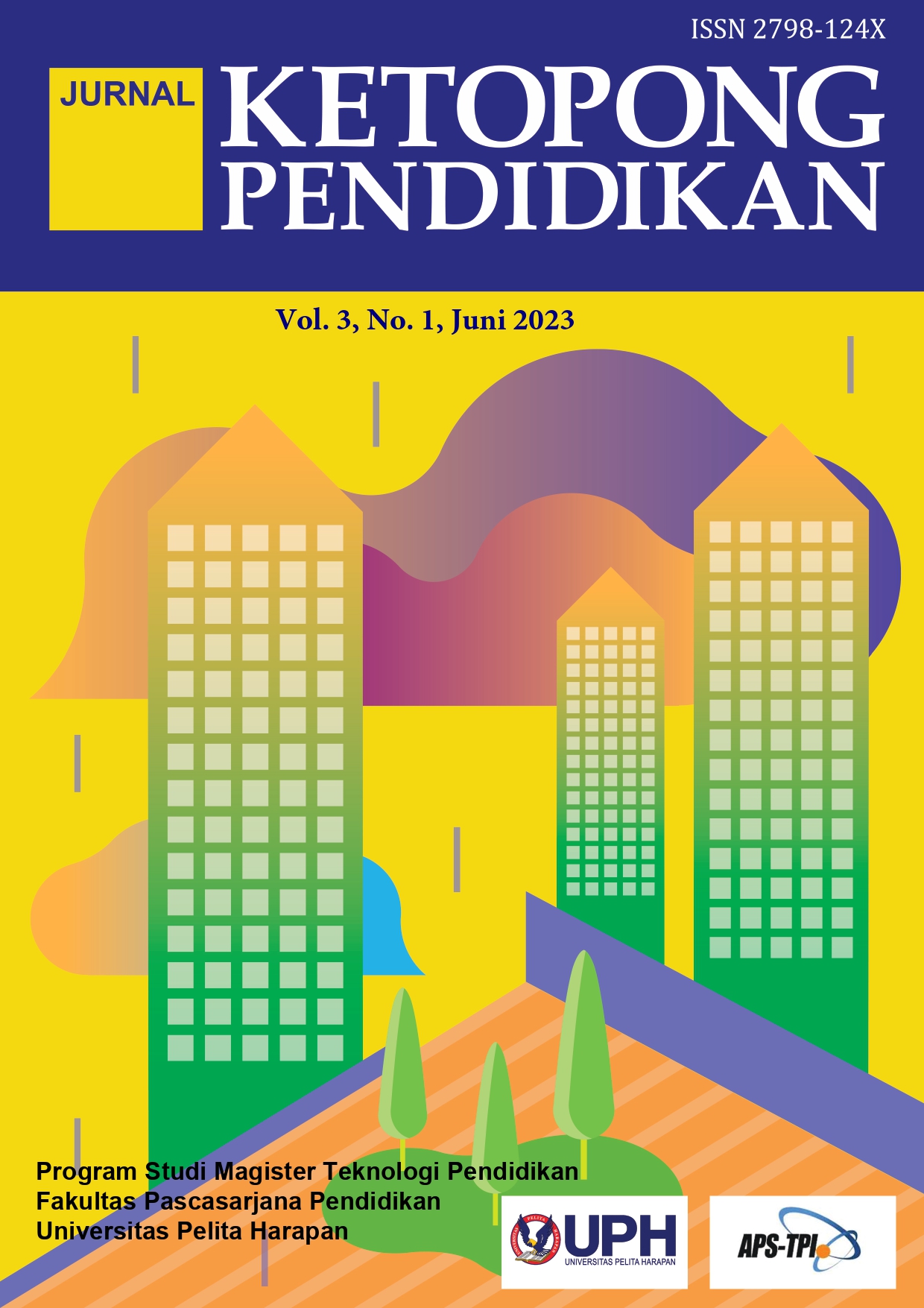Kepemimpinan Rohani dan Motivasi Kerja dalam Mempengaruhi Kinerja Guru di sebuah Sekolah Kristen
DOI:
https://doi.org/10.19166/jkp.v3i1.10408Λέξεις-κλειδιά:
spiritual leadership, work motivation, performanceΠερίληψη
The quality of education within an institution is highly dependent on the quality of teacher performance, as teachers play a central role in shaping students learning experiences and outcomes. Therefore, it is essential for educational institutions to conduct teacher performance evaluations regularly to maintain and enhance educational quality. Various factors influence teacher performance, including the leadership style of the principal and the teachers’ level of work motivation. This study aimed to analyze the positive influence of spiritual leadership and work motivation on teacher performance. The research employed a quantitative approach using the Partial Least Squares–Structural Equation Modeling (PLS-SEM) method to examine the relationships among the variables. Data were collected through questionnaires distributed to fifty teachers at XYZ Elementary School. The findings reveal that the principal’s spiritual leadership significantly enhances teachers’ work motivation, which in turn improves their performance. Moreover, both spiritual leadership and work motivation were found to have a positive and direct impact on teacher performance. These results highlight the importance of spiritual values in leadership practices and the need for schools to foster motivation among teachers to achieve better educational outcomes and overall institutional effectiveness.
Αναφορές
Blackaby, H. T., & Blackaby, R. (2011). Spiritual leadership: Moving people on to God's agenda. B&H Publishing Group.
Colquitt, J. A., Lepine, J. A., & Wesson, M. J. (2015). Organizational behavior: Improving performance and commitment. organizational behaviour. McGraw-Hill Education.
Edlin, R. J. (2004). Why christian schools? In direction for christian education in a new millenium, (pp.2–3). Blacktown, NSW: National Institue of Christian Education.
Gagné, M., & Deci, E. L. (2005). Self‐determination theory and work motivation. Journal of Organizational behavior, 26(4), 331−362. https://doi.org/10.1002/job.322
Garson, G., D. (2016). Validity and reliability. Statistical associates blue book series. USA: Statistical Publishing Associates.
Ghozali, I., & Hengky L. (2015). Partial least squares: Konsep, teknik dan aplikasi smart PLS 3.0. 2. Semarang: Universitas Diponegoro Semarang.
Wang, M., Guo, T., Ni, Y., Shang, S., & Tang, Z. (2019). The effect of spiritual leadership on employee effectiveness: An intrinsic motivation perspective. Frontiers in psychology, 9, 2627. https://doi.org/10.3389/fpsyg.2018.02627
Keller, T. ( 2016). Apakah pekerjaan anda bagian dari pekerjaan allah? (Every good endeavor). Surabaya: Literatur Perkantas Jatim.
Tung Y., K. (2013). Filsafat Pendidikan Kristen. Yogyakarta: Penerbit ANDI.
Mangkunegara, A., P. (2009). Manajemen Sumber Daya Manusia Perusahaan. Bandung: PT. Remaja Rosdakarya.
Murti, H., & Srimulyani, V. A. (2013). Pengaruh motivasi terhadap kinerja pegawai dengan variabel pemediasi kepuasaan kerja pada PDAM Kota Madiun. JRMA Jurnal Riset Manajemen dan Akuntansi, 1(1), 10−17.https://journal.ukwms.ac.id/index.php/jrma/article/view/6765
Nawawi, H. (1997). Manajemen sumber daya manusia untuk bisnis yang kompetitif. Gajah Mada University-Press, Yogyakarta.
Onyebuchi, O., S. Maisarah, M., S. Dewi, F., A. Cindy, T. (2015). The impact of spiritual leadership on employee performance in Nigerian micro finance banks. Proceedings of 34th The IIER International Conference. https://www.worldresearchlibrary.org/up_proc/pdf/57-144066008352-56.pdf
Piper, J. (2014). Marks of A Spiritual Leader. E-book. Minneapolis: Desiring God.
Sanders, J., O. (2007). Spiritual leadership: A commitment to excellence for every believer. Chicago, IL: Moody Publishers.
Santoso, M., P. (2013). Becoming a christ-like teacher. Pelangi Kristus Supervisor's Training, Pelangi Kristus Christian School. (Unpublished). http://repository.petra.ac.id/id/eprint/15660
Udin, U. (2019). Spiritual leadership and employee performance: An empirical investigation. International Journal of Business Management and Economic Review, 2(05), 54−61. http://doi.org/10.35409/IJBMER.2019.2420
Λήψεις
Δημοσιευμένα
Τεύχος
Ενότητα
Άδεια
Πνευματική ιδιοκτησία (c) 2025 luciana sugiono

Αυτή η εργασία είναι αδειοδοτημένη υπό το Creative Commons Attribution-ShareAlike 4.0 International License.
Authors who publish with this journal agree to the following terms:
1) Authors retain copyright and grant the journal right of first publication with the work simultaneously licensed under a Creative Commons Attribution License (CC-BY-SA 4.0) that allows others to share the work with an acknowledgement of the work's authorship and initial publication in this journal.
2) Authors are able to enter into separate, additional contractual arrangements for the non-exclusive distribution of the journal's published version of the work (e.g., post it to an institutional repository or publish it in a book), with an acknowledgement of its initial publication in this journal.
3) Authors are permitted and encouraged to post their work online (e.g., in institutional repositories or on their website). The final published PDF should be used and bibliographic details that credit the publication in this journal should be included.


